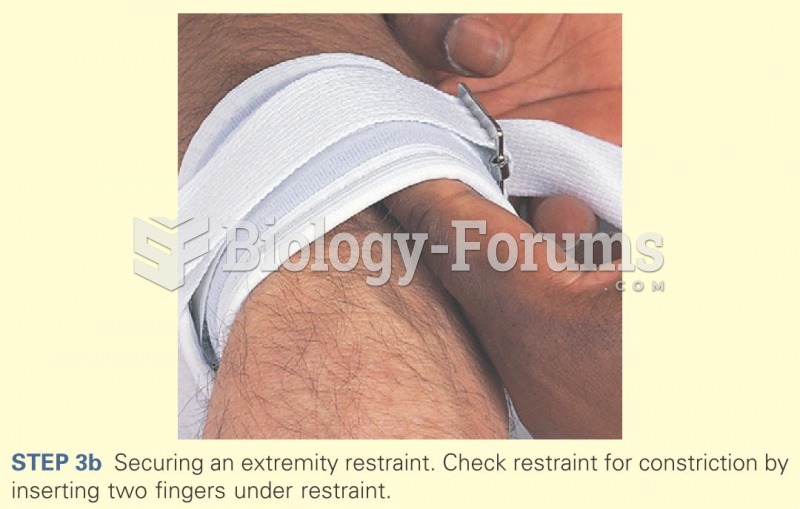|
|
|
Interferon was scarce and expensive until 1980, when the interferon gene was inserted into bacteria using recombinant DNA technology, allowing for mass cultivation and purification from bacterial cultures.
More than 150,000 Americans killed by cardiovascular disease are younger than the age of 65 years.
Always store hazardous household chemicals in their original containers out of reach of children. These include bleach, paint, strippers and products containing turpentine, garden chemicals, oven cleaners, fondue fuels, nail polish, and nail polish remover.
The people with the highest levels of LDL are Mexican American males and non-Hispanic black females.
A seasonal flu vaccine is the best way to reduce the chances you will get seasonal influenza and spread it to others.







